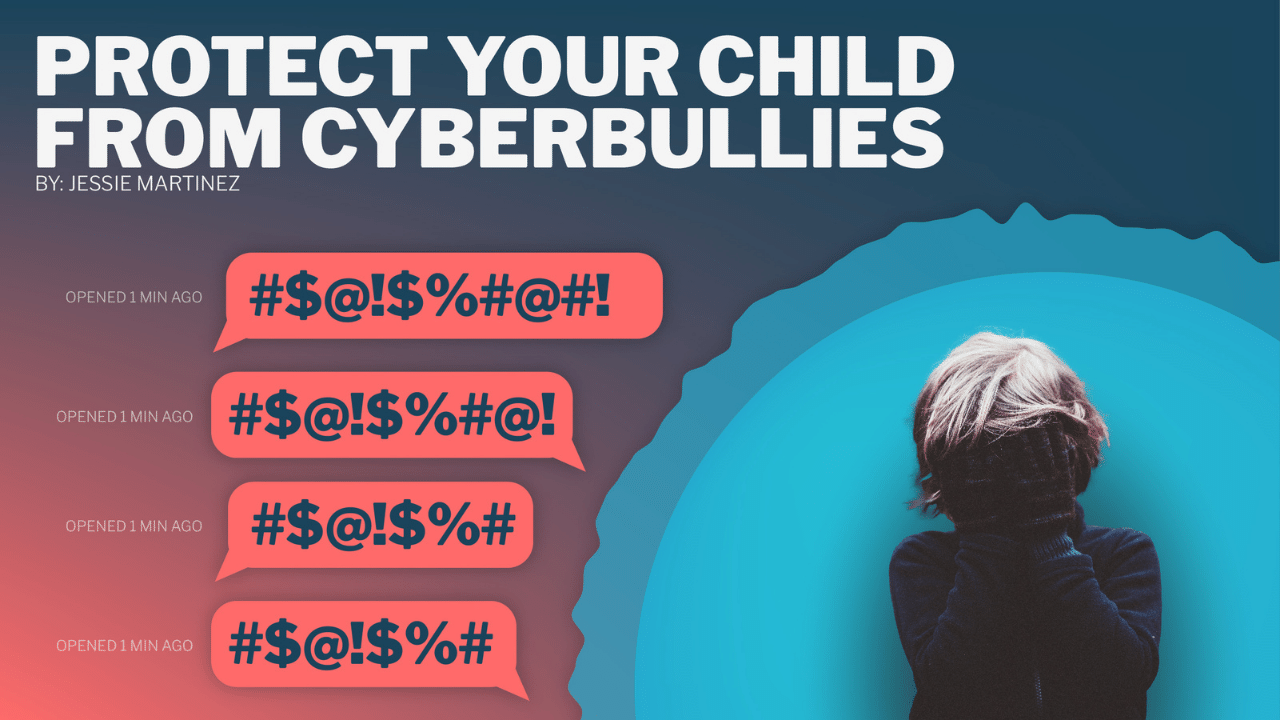5 Actions to Protect Kids From Cyber Bullies
Aug 02, 2022
We live in a digital world where cyberbullying has become a popular method for individuals, especially youth, to repeatedly harass another person online.
Cyberbullying has also increased since the start of the Covid-19 pandemic due to a major uptick in screen time as kids and teens have turned to digital platforms to stay connected.
In 2020, L1ght, an organization that tracks online harassment, found, “there has been a notable increase in levels of bullying and abusive language among children…on social media and popular chat forums, L1ght has identified a 70% uptick in instances of hate speech between kids and teens.”
Further research stated that between the ages of 10 and 18, 21 percent of children have been cyberbullied. That means 1 in 5 kids experience the negative effects of online verbal abuse.
Findings from a 2018 Pew Research Center study revealed that “...24% of US youth indicated that social media had a mostly negative effect on their peers and 27% noted that bullying and rumor spreading was the main reason for such negativity.”
Cyberbullies rely on anonymity; typing insults online or posting offensive content on social media often has far fewer consequences than acting out in real life. They also take advantage of other users’ tolerance and ignorance—both their victims and other community members. Victims may hesitate to block the bully because they may perceive that action as too negative or judgmental.
Virtual bystanders may not understand how they can jump in and help redirect the conversation in a positive way.
The best way to prevent cyberbullying is to teach all kids the importance of digital citizenship and how to use technology responsibly and with kindness. However, it’s equally important to teach kids how to protect themselves from cyber bullies if they encounter them.
Here are our six tips you can share with kids and teens to help counteract the negative impact and influence of cyberbullies:
Report and Block
The two most important actions to take in response to a cyberbully are reporting their account and then blocking them. Reporting their account will trigger a review by the platform moderators and blocking them will prevent them from commenting on posts or sending private messages in the future. While you might not be able to control what others' opinions are, you can control their online access to you.
Keep Your Account Private
Make your account private and only accept requests from people you know. Take advantage of the filters on social media that hide offensive words and phrases, inappropriate comments, and unwanted message requests.
Turn Off the Comment Section
If you choose to share content publicly (YouTube videos, for example) turn off the comment section. Ask your friends and family for direct feedback if you want a critique rather than leaving it up to strangers on the internet. On Twitter, you can also restrict comments and mentions to just the people you follow.
Install a Firewall
Help protect kids and teens from accidentally stumbling across harmful websites and digital communities by using a network firewall. Check out these options for parental control software that will help you create common-sense rules for online browsing.
Protect Personal Accounts and Information
Cyberbullies can use personal information to target their victims. Kids should avoid sharing personal details online like their address, phone number, or name of their school. It’s also important to create strong passwords to prevent your accounts from being hacked. Teach them how to create a password mnemonic to remember a random set of letters, symbols, and numbers. For example Co$iDw/p (Crush orange $oda is Delicious with (w/) pizza). Also, please do not use this example as an actual password as hackers crawl websites for potential passwords.
The most important thing you can do is engage with your kids’ digital interests on a regular basis. Ask them what apps they love or what games they’re really into. Ask them to help teach YOU how to use them. If you show genuine interest in their digital activities, they’ll be more likely to open up and share if they’re having a problem with cyberbullying.
It's important for youth, educators, and parents to learn how to safely use technology in order to prevent, avoid, and address cyberbullying. #ICANHELP has an award-winning Digital Citizenship Curriculum that teaches students how to engage safely and responsibly online through hands-on lessons and activities. If you’d like to see this curriculum used in your school or if you need additional support to address cyberbullying, get in touch with us!
Stay connected with news and updates!
Join our mailing list to receive the latest news and updates from our team.
Don't worry, your information will not be shared.
We hate SPAM. We will never sell your information, for any reason.


